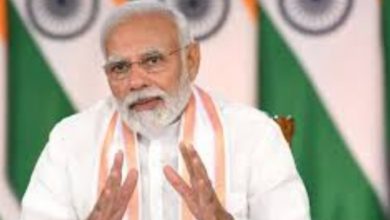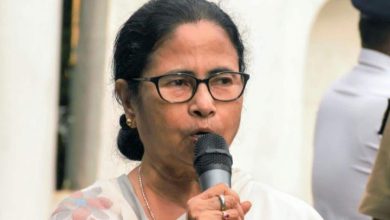Board knew of NSE chief’s misconduct but let her resign with glowing praise

THE BOARD OF the National Stock Exchange (NSE) “failed” to inform the market regulator Securities and Exchange Board of India (SEBI) despite “having knowledge of grave irregularities and misconduct” on the part of its then MD & CEO Chitra Ramkrishna and instead of acting against her, let her exit with glowing praise.
When she resigned on December 2, 2016, the NSE board was chaired former Finance Secretary Ashok Chawla and included former Sebi Executive Director Dharmishta Raval, former judge of the Supreme Court BN Srikrishna, former Secretary at the Minry of Corporate Affairs Naved Masood, KPMG India’s former Deputy Chief Executive Dinesh Kanabar, Manipal Global Education Services Chairman Mohandas Pai, General Atlantic advisory director Abhay Havaldar, Azim Premji Investment CIO Prakash Parthasarathy, besides Ravi Narain, Vice Chairman, and Ramkrishna herself.
According to Sebi, even after knowing that Ramakrishna was dependent on the guidance of an “unknown person” while taking important decisions, the NSE board permitted her to “exit through resignation” and recorded the appreciation in the Board meeting held on December 2, 2016, of her “sterling contribution to the growth of organisation”. These observations came after the regulator heard NSE and Ramkrisna’s responses to the show cause notices sent in October 2019 and December 2019.
Kanabar, Pai and Masood joined the company’s Board in July 2016, five months before Ramkrishna resigned. Chawla became the Chairman of NSE in May 2016 after former LIC chief SB Mathur completed a three-year tenure as NSE Chairman.
Anand Subramanian, former ‘Group Operating Officer and Advisor to MD’, whose appointment created the controversy, joined NSE during Mathur’s tenure. This appointment Ramkrishna was arbitrary and not in compliance with NSE’s policies. Further, she shared confidential information with an ‘unknown person’ and misled NSE that the unknown person was a ‘siddha-purusha’.
According to a NSE former director who was on the board when Ramkrishna stepped down, it was around August 2016 that SEBI communicated with the board, pointing out alleged transgressions involving Subramanian’s appointment and remunerations that were informed to the regulator anonymous letters.
Following SEBI’s communication, in which it asked the board to investigate the issue, the board set up an inquiry committee headed the chairperson of its audit committee Dinesh Kanabar. “We found there has been gross abuse of power the CEO (Ramkrishna) in paying Subramanian high compensation for four years. The human resources department said matters pertaining to Subramanian’s compensation were approved the CEO,” the former director said on condition of anonymity.
In October 2016, the board met and decided that Subramanian had to go. Subramanian’s departure, according to the former director, created a rift between Ramkrishna and the board.
Following the COO’s exit, the board commissioned a forensic inquiry Ernst & Young that investigated the suspicious e-mails sent Ramkrishna pertaining to Subramanian’s appointment and remuneration. Based on the EY report, the board confronted Ramkrishna, and this culminated in her resignation on December 2, 2016, according to the former director on NSE board.
At that time, however, the company had said that she resigned because of “personal reasons”.
When contacted The Indian Express, Justice B N Srikrishna, who was appointed as a public interest director in NSE in August 2013, and who stepped down after his term of three years, refused to comment. Chawla and Kanabar did not respond to calls and text messages seeking comments.
NSE and its board were aware of the exchange of confidential information Ramkrishna with an unknown person with the email ID rigyajursama@outlook.com in its meeting on November 29, 2016. “However, NSE and its board had taken a conscious decision to not report the matter to SEBI and keep the matter under wraps,” SEBI said.
ExplainedLack of corporate governanceA stock exchange is a first level regulator. The fact that the board of the NSE knew of “grave irregularities” in the conduct of its former CEO and MD points to the need for far superior checks and balances.
According to the SEBI order dated February 11, 2022, failure on the part of NSE to provide the information to SEBI even after repeated reminders, failure to designate Subramanian as a key managerial person (KMP) and “conceal information from the SEBI demonstrates the non-deference to the advice of SEBI and indifference to the provisions of law”.
“NSE failed to adminer the stock exchange with professional competence, fairness, impartiality, efficiency and effectiveness; failed to maintain the highest standards of personal integrity, truthfulness, honesty and fortitude in discharging their duties and has engaged in acts discreditable to their responsibilities; failed to perform their duties in an independent and objective manner; and failed to perform their duties with a positive attitude and constructively support open communication,” SEBI said.
The regulator pointed to how Ramkrishna even took initiatives to raise the bar for corporate governance standards. While companies whose securities are led with NSE are required to comply with corporate governance norms, she went one step ahead launching a new corporate governance initiative, ‘NSE Prime’, as part of which higher standards of corporate governance were prescribed for led companies.
EY report on the incident says only the desktops assigned to Ramkrishna and Subramanian were imaged/checked, and the laptops assigned to NSE and Subramaniam were not available for forensic imaging as they were disposed as e-waste, the regulator said.
Whenever public interest directors see any major regulatory lapse in the functioning of the exchange, they must report to SEBI, the regulator said. However, that was not done in this case. Further, permitting Ramkrishna to merely resign and not taking any action against her, NSE has not acted in the interest of the securities market, resulting in failure of its primary responsibilities, SEBI said.
(With inputs from AASHISH ARYAN and SUNNY VERMA in New Delhi)





